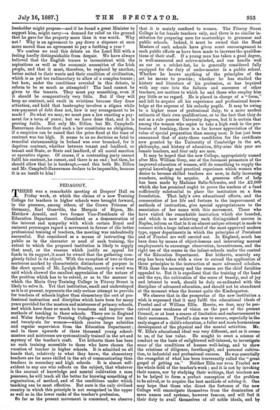freeholder might propose—and if he found a great Minister to
support him, might carry—a demand for relief on the ground that he gave for the property more than it was worth. Why not ? Why is an agreement to pay down a sixpence at once more sacred than an agreement to pay a farthing a year ?
We confess we read this debate on the Land Bill with a feeling hardly distinguishable from despair. We have always believed that the English tenure is inconsistent with the aspirations as well as the economic necessities of the Irish people, and that it must, therefore, be replaced by another, better suited to their wants and their condition of civilisation, which is as yet too rudimentary to allow of a complex tenure ; but how, under the conditions revealed in this debate, is reform to be so much as attempted? The land cannot be given to the tenants. They must pay something, even if it should be comparatively very little. But if they will keep no contract, and exult in evictions because they draw attention, and hold that bankruptcy involves a stigma while non-payment of debt does not, how is any arrangement to be made Do what we may, we must pass a law exacting a pay- ment for a term of years ; but we have done that, and it is proving futile. Not only Mr. Dillon, but Mr. Campbell- Bannerman declares that such a law constitutes no obligation, if a suspicion can be raised that the price fixed at the time of contract was too high. It seems to us no doctrine so fatal to remedial statesmanship in Ireland was ever broached, for it deprives contract, whether between tenant and landlord, or tenant and State, or State and landlord, of all moral sanction or operative vigour. Of course, if a contracting party cannot fulfil his contract, he cannot, and there is an end ; but then, he should allow that he is bankrupt,—and this both Mr. Dillon and Mr. Campbell-Bannerman declare to be impossible, because it is an insult to him!










































 Previous page
Previous page